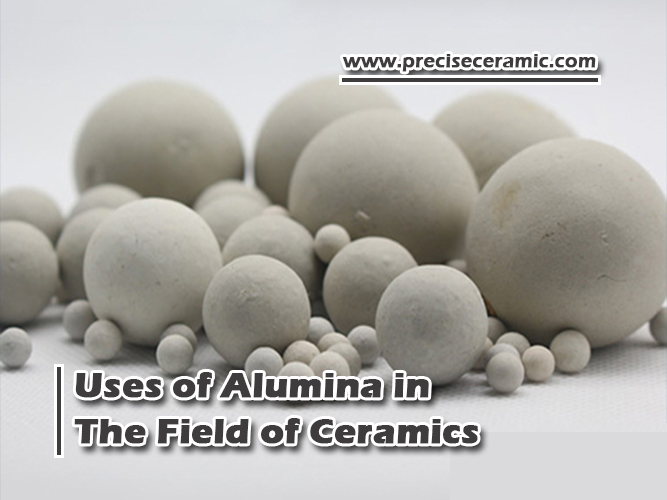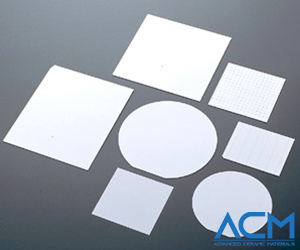Do you have any questions? Email Us
[email protected]

Alumina, also known as aluminum oxide, is a highly versatile and widely used material in the field of ceramics. It is a white or off-white crystalline powder with a high melting point and excellent thermal and mechanical properties. In this article, we will discuss the various uses of alumina in the field of ceramics.
One of the most significant applications of alumina in the ceramics industry is as a refractory material. Due to its high melting point, alumina is used as a lining material in high-temperature furnaces and kilns. Alumina also provides excellent thermal shock resistance, making it an ideal material for use in refractory applications.
Alumina is widely used as a substrate material in the production of electronic components, such as microchips and circuit boards. Alumina substrates are highly resistant to thermal and mechanical stresses, making them ideal for use in harsh environments. Additionally, alumina substrates provide excellent electrical insulation and high thermal conductivity.

Alumina is also used as a grinding media in the ceramics industry. The hardness and wear resistance of alumina make it an ideal material for use in grinding applications. Alumina grinding media are used in ball mills, vibratory mills, and other types of grinding equipment.
Alumina ceramics are widely used in the biomedical industry due to their excellent biocompatibility and resistance to wear and corrosion. Alumina ceramics are used to manufacture dental implants, joint replacements, and other medical devices.
Alumina is highly resistant to wear and abrasion, making it an ideal material for use in high-wear applications. Alumina ceramic components are used in a variety of industrial applications, including wear plates, cutting tools, and pump components.
Alumina is an excellent insulating material, making it ideal for use in high-temperature and high-voltage applications. Alumina ceramics are used in the production of heating elements, electrical insulators, and other electrical components.
In conclusion, alumina is a highly versatile material with numerous applications in the field of ceramics. Its high melting point, excellent thermal and mechanical properties, and wear resistance make it an ideal material for use in refractory, grinding, and wear-resistant applications. Additionally, alumina's biocompatibility and insulating properties make it an ideal material for use in biomedical and electrical applications. For more information about ceramics, please visit our homepage.